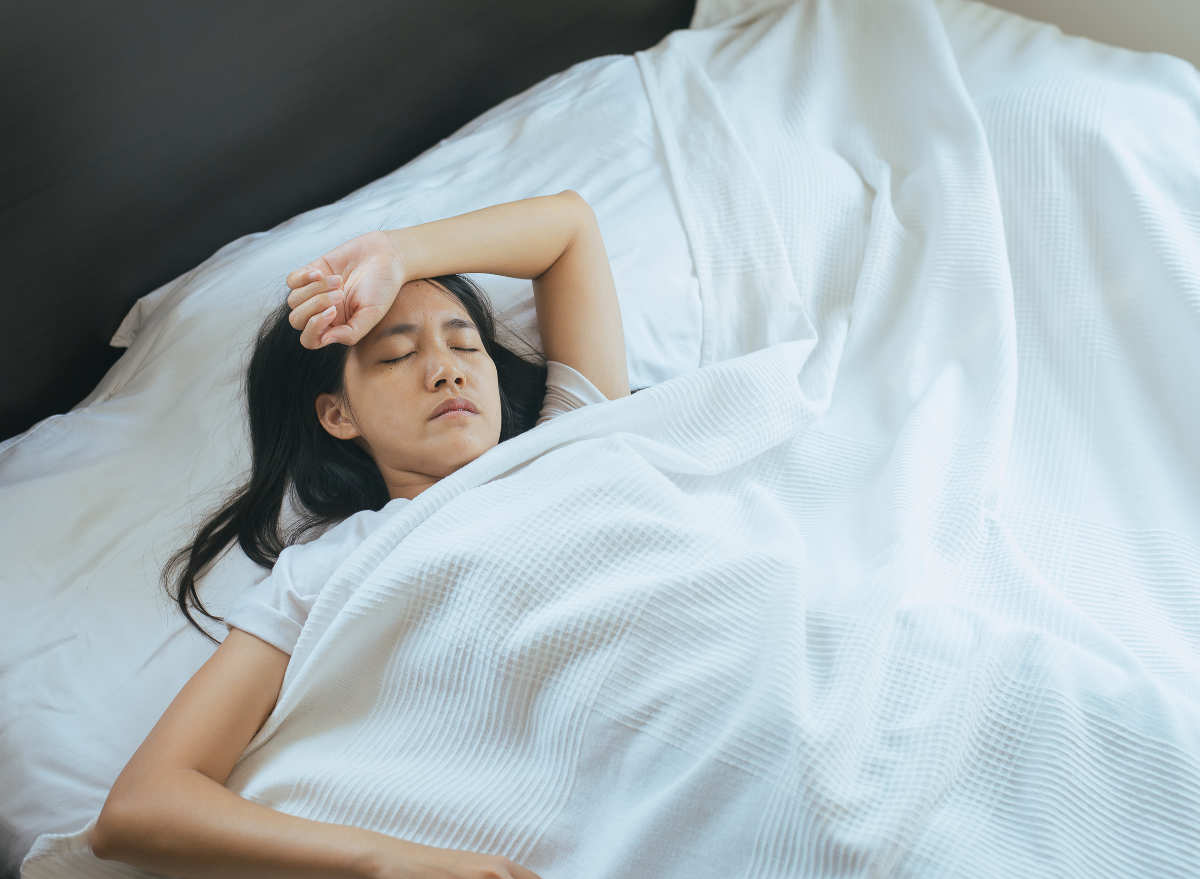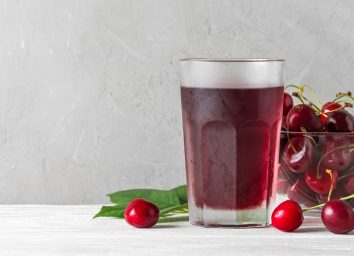Not Getting Enough Sleep May Have This Negative Effect on Your Snacking Habits, New Study Suggests

While you're likely aware of the fact that sleep is related to your overall health, there's now another reason to make sure that you're getting enough rest. According to a new study from The Ohio State University (OSU), which was published in the Journal of the Academy of Nutrition and Dietetics, failing to get the recommended amount of sleep—which is seven or more hours each night, per the Centers for Disease Control and Prevention—can lead to unhealthy snacking tendencies.
Taking a look at the sleeping and eating habits of almost 20,000 participants between the ages of 20 and 60 years old who had been a part of the National Health and Nutrition Examination Survey from 2007 to 2018, researchers found that those who weren't getting enough sleep were opting for less-than-ideal food choices.
"We found that those that didn't meet sleep recommendations had more calories, carbohydrates, and added sugars during evening snacks than those who usually met sleep recommendations," Christopher Taylor, professor of medical dietetics in the school of health and rehabilitation sciences at OSU, and senior author of the study tells Eat This, Not That!
"Also, beverages (sweetened beverages and alcohol) and snacks and sweets (savory snacks like chips and bakery items) were the top contributors to evening snacks, showing we are drinking our calories and consuming more products that contribute added sugars, but less overall nutrient content."

Taylor adds that "staying awake longer is thus related to several behaviors related to obesity and chronic disease, such as sedentary behavior, increased screen time, and the snacking we described."
Zoë Schroeder, MS, RDN, CSCS, isn't surprised by the study's findings, noting that when you don't get enough sleep, "your hunger hormone, ghrelin, is increased which leads to increased eating and snacking, and usually of less nutritious foods."
"Not only does poor sleep affect your food choices the following day, but if you are awake longer, you are more likely to be snacking well into the night and less likely to efficiently utilize that excess energy, which gets stored as fat," she adds.
Angela Houlie, MS, RDN, CDN, founder, and owner of My Fruitful Body Nutrition PLLC, also says the "study is spot on," saying that "the less sleep [you get], the more likely we are to partake in activities linked to obesity." She adds that "poor sleep also affects our moods, decision-making, and concentration which can all lead to unhealthy food options."
If you still find yourself reaching for a snack whether or not you got the recommended amount of sleep, Marissa Meshulam, MS, RD, CDN, has a few healthy suggestions for you to consider adding to your grocery cart. Along with Greek yogurt which is "super high [in] protein and filling," she adds that eggs and nuts, dried chickpea snacks, avocado and veggies, cottage cheese and tomatoes, as well as fruits and nut butter options are all delicious and nutritious options.
For more tips, be sure to check out 5 Ways Eating Chickpeas Can Help You Lose Weight, Say Dietitians. Then, don't forget to sign up for our newsletter!








